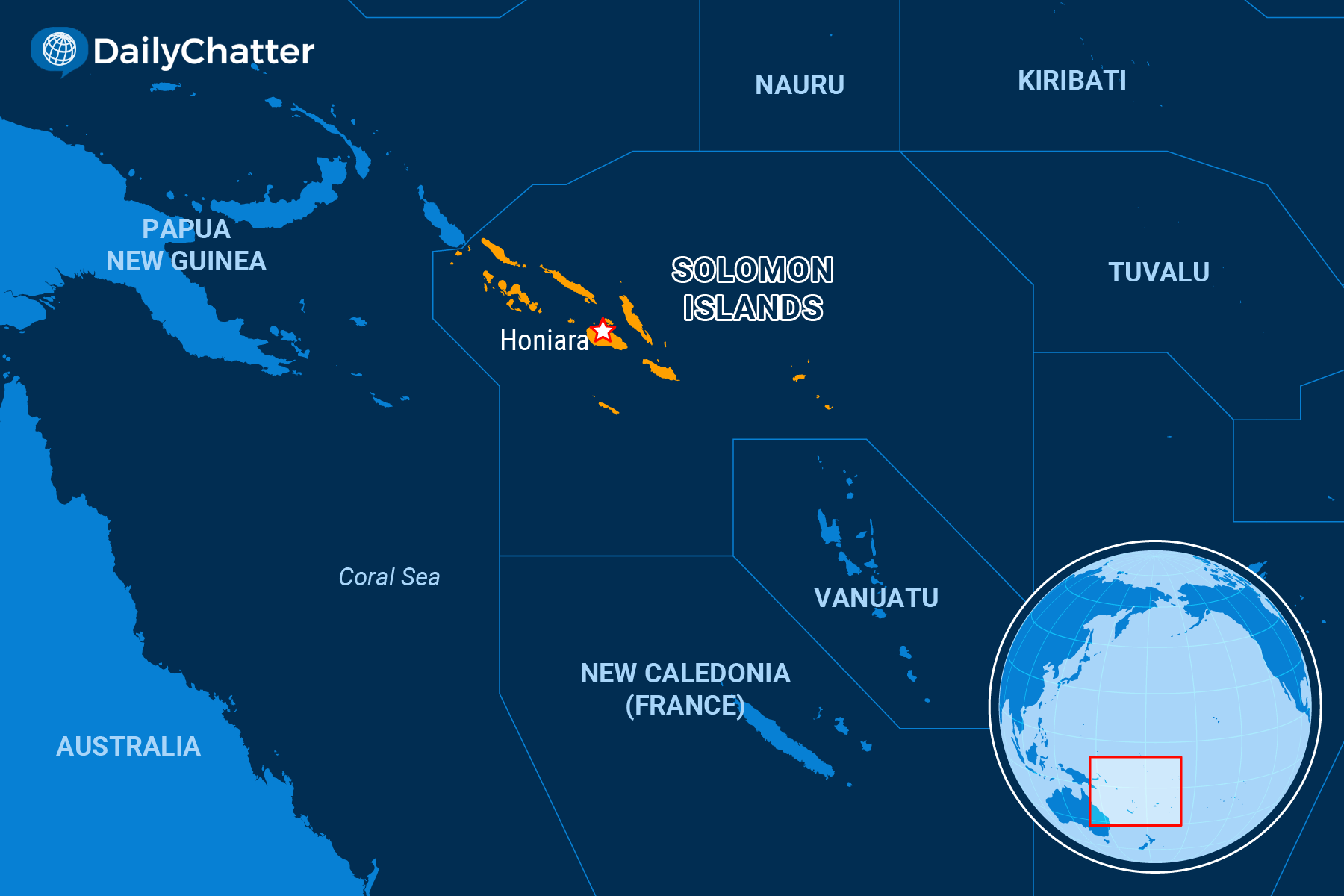NEED TO KNOW
Little Islands, Big Games
SOLOMON ISLANDS

Prime Minister Manasseh Sogavare of the Solomon Islands distributed almost $2.5 million to 39 out of 50 lawmakers last year. Sogavare arguably wasn’t spending taxpayers’ money, however. He was doling out cash that China gave him specifically to appropriate at his discretion.
Unsurprisingly, some observers in the Solomon Islands felt like the prime minister was using his Chinese cash to bolster his popularity among lawmakers after a few years of extremely controversial pro-China moves, Voice of America reported.
Sogavare has been moving the Solomon Islands, a former British colony, closer to China for years. In 2019, he switched his country’s diplomatic mission from Taiwan to Beijing. In November 2021 four people died in riots that erupted in the capital of Honiara over fears that the country was drawing too close to the authoritarian power, Reuters explained. Australian troops needed to be called in to restore order. In December, he survived a no-confidence vote stemming from the civil unrest.
In March, news broke of a secret security pact between the Solomon Islands and China.
China has been securing such deals to cement its so-called Belt and Road Initiative, a globe-spanning series of infrastructure projects to create supply lines that put China at the hub of a massive trade market, the Council on Foreign Relations wrote.
As the Brookings Institution wrote, it’s not clear exactly how the pact will work. Leaders in Beijing have not lent military support to foreign nations since the early days of the Cold War. But in August, Sogavare turned a US Coast Guard ship and a British Royal Navy vessel away, raising concerns that the country’s closer ties with China might mean it will sever its ties with the US and Britain, the New York Times reported.
Then, in early September, Solomon Islands lawmakers approved delaying national elections from May through August in 2023 to early 2024, according to the Washington Post. Opposition leaders called the delay a “power grab.” The United States Institute for Peace warned that it could undermine democracy.
Sogavare argued that the country couldn’t manage elections as well as the Pacific Games. China, incidentally, is building a massive stadium that will host the games in Honiara, added the Kyodo News. He rejected an Australian offer to help fund the election at its scheduled time as “interference.” The prime minister has similarly criticized other questions about Chinese influence in his country.
Still, the country on Tuesday did agree to sign an accord between the US and more than a dozen Pacific nations on climate change, natural disasters and economic growth – but only after indirect references to China were removed, ABC News reported.
At the same time, researchers at the Australian Strategic Policy Institute think tank said this week that the Chinese Communist Party has attempted to undermine the Solomon Islands’ relationship with Australia and the US by spreading false narratives through local and social media networks, the broadcaster added.
Meanwhile, many Solomon Islanders are worried that Chinese security forces and surveillance technology will soon be deployed in their country if Sogavare’s position comes under threat, Foreign Policy magazine reported. The United States Institute of Peace warned that China’s search for an expanded military presence in the Pacific is akin to Japanese expansion prior to World War II, noting that Kiribati is likely the next hotspot.
Still, many Pacific Islanders are not happy with the trend, especially in the Solomon Islands. If a democratic movement does rise up against Sogavare, the prime minister might have little say on what happens next.
To read the full edition and support independent journalism, join our community of informed readers and subscribe today!
